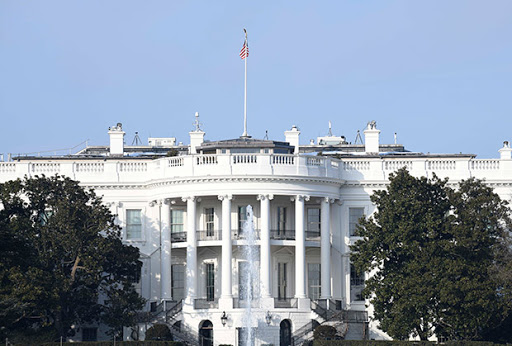
(Photo: Xinhua)
WASHINGTON, Feb. 10 (Xinhua) -- The White House on Monday unveiled a budget proposal for next fiscal year that would cut major domestic programs, claiming that solid economic growth would support substantial deficit reduction and lead to a balanced budget by 2035.
The budget for fiscal year 2021, which runs from October this year through September next year, projects federal deficit will hit 1 trillion dollars for current fiscal year and hover above 200 billion dollars after a decade, accounting for 4.9 percent and 0.7 percent of gross domestic product (GDP) respectively.
The "spending restraint" includes targeted reductions and eliminations of "low-value programs," and a number of policies to improve payment accuracy and eliminate "wasteful spending" in mandatory programs, according to the proposal issued by the White House's Office of Management and Budget.
The "largest" spending cut in the budget comes from 1.55 trillion dollars in cuts to non-defense discretionary programs, generated by reducing nominal spending 5 percent between 2020 and 2021 and an additional 2 percent each year thereafter, said the Committee for a Responsible Federal Budget, a nonpartisan watchdog group.
"Significant further savings are generated from changes to health care, welfare programs, and reductions and reforms to other parts of the budget," the group noted.
The budget also extends the individual income tax cuts beyond their 2025 expiration, which alone adds 1.5 trillion dollars to the debt, the group said.
Michael A. Peterson, CEO of the Peter G. Peterson Foundation, said in a statement Monday that the budget proposal relies on "optimistic" projections for economic growth and "unlikely" budget cuts to illustrate deficit reduction.
"The reality is that in order to manage our rapidly growing debt, we need to address the big issues -- the aging of our population, rising healthcare costs and inadequate revenues," Peterson said.
Echoing his comment, the watchdog group said the budget relies on "overly optimistic" economic assumptions and "budget gimmicks that inflate its savings and distract from its actual policy reforms."
The budget assumes annual real GDP growth at 3.1 percent for fiscal year 2021, 3 percent through 2025, and averaging 2.9 percent over the decade. "This estimate is about 50 percent higher than those from other forecasters, who project annual growth around (and in some cases less than) 2 percent per year," the group said.


